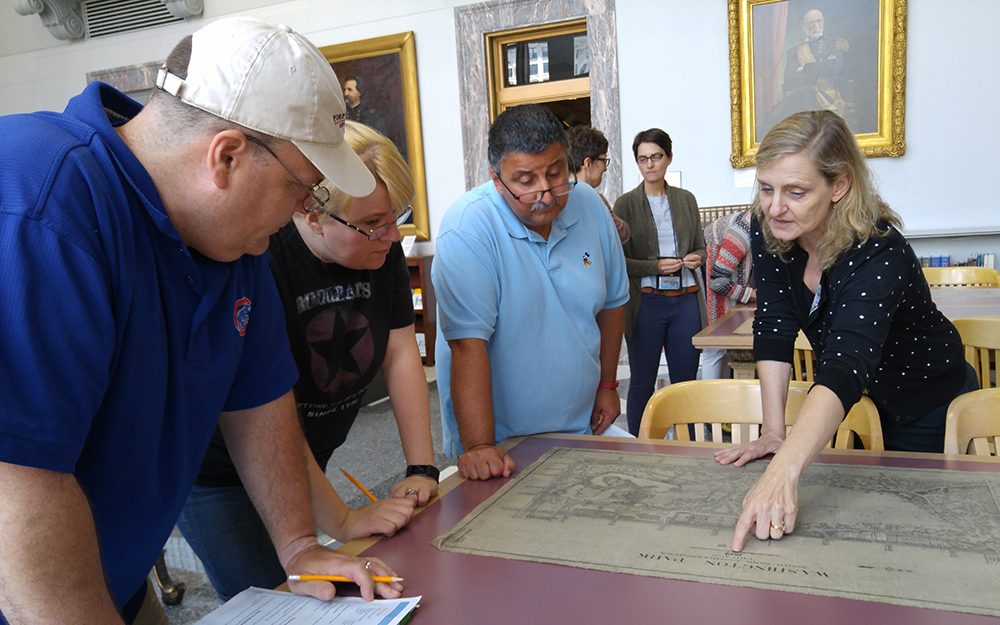Professional Development
Chicago Metro History Day

2024–25 Events
Virtual | History Day Methods
Thursdays, October 24-November 21, 2024, 7–8:00 p.m.
Zoom
History Day Methods is designed to prepare new or returning teachers to integrate History Day in their classrooms. This program has five interactive modules that educators work through over the course of five weeks. Teachers and CMHD staff will meet weekly on Zoom throughout the course to discuss the modules, assignments, and questions.
Outside of the Zoom meetings, teachers will work through the modules and learn more about the History Day program, requirements, and strategies for how to implement History Day in the classroom. Educators will be able to chat with other History Day teachers and History Day staff about the content, as well as any questions or concerns.
NEIU Research Palooza
Saturday, December 7, 2024
Ronald Williams Library at Northeastern Illinois University
Chicago Metro History Day’s Research Palooza with NEIU will feature research and project coaching opportunities and presentations from experts.
UIC Research Palooza
Saturday, January 11, 2025
UIC Richard J. Daley Library
Chicago Metro History Day’s Research Palooza with UIC will feature research and project coaching opportunities and presentations from experts.